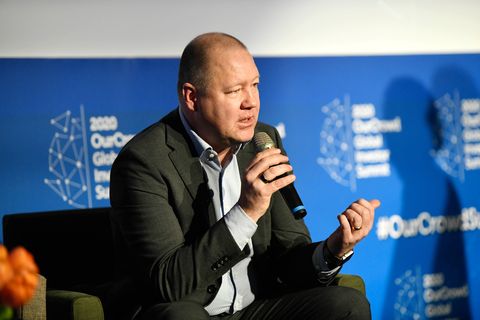Tech Companies Draw the Auto Industry to Israel
There are places you expect to find clusters of automakers: southeastern Michigan, northern Italy, or near the Nürburgring in Germany. Israel might not seem a likely candidate to join that group, yet a substantial and growing number of carmakers have been flocking to the country, the latest being Volvo’s parent company, Geely.
A few years after acquiring Volvo in 2010, Geely established China Euro Vehicle Technology AB (CEVT) in the Swedish automaker’s hometown of Gothenburg. Its mission is to source and develop new technologies for the group, which (besides standing among China’s largest automakers) includes Volvo, Polestar, Lynk & Co, Lotus, Malaysian automaker Proton, and the London Electric Vehicle Company. It also holds a leading 9.7 percent stake in Daimler, with which it shares the Smart brand. Now CEVT has opened a satellite office in Israel, and each of its sister-companies stands to benefit as a result.
Despite lacking any substantial history of automobile manufacturing, Israel has emerged as a powerhouse in the field of smart-mobility technology. Companies like Mobileye (acquired by Intel for $15.3 billion), Waze (by Google for $966 million), and Argus (by Continental AG for $430 million) have demonstrated the country’s leadership in such fields as autonomous vehicles, navigation, and cyber-security, respectively. And automakers like Volvo and Geely are keen to tap into the burgeoning ecosystem.
CEVT has been working with local startups since 2018 when it first participated in Israel’s annual EcoMotion expo. Now it has opened its Israel Innovation Hub near the top of Tel Aviv’s Azrieli Sarona Tower – the tallest building in the country – and tapped former EcoMotion director Lior Zeno to run the operation.
“Israel has a world-leading open innovation environment, driven by passion for AI and cyber-security,” Didier Schreiber, Head of Innovation at CEVT, told Car and Driver. “We believe that combining the efficiency of a large company like CEVT with entrepreneurial capabilities offered by Israeli companies are the best way forward to find tomorrow’s mobility solutions.”
“Innovation behind closed doors rarely leads to anything revolutionary, which is what we are aiming for. So far, our presence in Israel has been fruitful, leading to several proof-of-concepts.”
Unlike some of its rivals, CEVT says it isn’t looking to acquire or invest in startups, focusing instead on fostering mutually beneficial relationships between innovators and the Geely group. Zeno told C/D that her office has six such projects currently under way, with another four under consideration, and three more to follow in the coming months.
Recently, CEVT dispatched a Lynk & Co 01 crossover to Israel to serve as a test bed for evaluating new technologies. The vehicle is identical to those deployed in Sweden and at another facility in northern Finland, allowing developers to test their innovations in all three environments without needing to board a flight – particularly helpful under COVID-19 travel restrictions.
“We want to explore what happens if we open up for a co-creation culture and combine two vibrant high-tech ecosystems,” CEVT’s strategic-collaboration chief Mikael Rönnholm said. “This is just the beginning of something very exciting.”
The Sino-Swedish company is hardly the first automaker to set up shop in the Silicon Wadi (or “valley” in Arabic). General Motors started working with Israeli startups in 1995. Today the GM Advanced Technical Center in Herzliya employs some 400 software developers, electrical engineers, and data scientists, and serves as the only overseas outpost for GM Ventures (the automaker’s investment arm).
German automakers have also been particularly active on the ground. Volkswagen has several operations in-country, including individual offices run by its Seat, Skoda, and Porsche divisions, as well as a group hub. Mercedes-Benz has 25 employees working at its R&D center in Tel Aviv. And BMW recently opened its own office in the same building as CEVT.
In the past few years alone, Ford, the Renault-Nissan-Mitsubishi Alliance, and Geely’s Shanghai-based rival SAIC have each opened tech offices in the Middle Eastern enclave. Honda and Hyundai have also both established local offshoots of their Silicon Valley startup-accelerator programs
Not every major automaker has jumped onboard this particular bandwagon, though. Despite the controlling Agnelli/Elkann clan’s own ties in the country, Fiat Chrysler has no corporate presence in Israel to speak of. Neither does its French merger-partner PSA. Toyota AI Ventures, meanwhile, centered its tech-investment activities for the entire EMEA region in Israel … until its sole employee on the ground left, with his replacement still pending.
Given the increasingly central role which Israeli technology has been playing in the global automotive industry, however, it wouldn’t be a surprise to see even those small gaps soon filled.
This content is created and maintained by a third party, and imported onto this page to help users provide their email addresses. You may be able to find more information about this and similar content at piano.io
This commenting section is created and maintained by a third party, and imported onto this page. You may be able to find more information on their web site.

